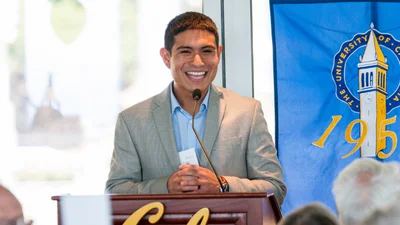Canada has been rocked by reports detailing the extent of Chinese interference across its democratic institutions. China’s capacity to influence Canadian politics and to infiltrate the political elite presents a stark warning that foreign interference is a very real threat, and China will take advantage of unwary Western nations.
Americans have every reason to be concerned that their neighbor to the North, a Five Eyes intelligence-sharing ally, is compromised. Canada’s Public Inquiry into Foreign Interference, or “Hogue Commission,” has unearthed a web of malign activities orchestrated by Chinese operatives. The commission’s findings highlight a multifaceted campaign aimed at influencing Canadian politics, media, and public opinion. The efforts include covert funding of political campaigns, pay for play in media, disinformation campaigns targeting voices critical of China, and attempts to manipulate policy in favor of Chinese interests.
Additionally, a recent report from Canada’s National Security and Intelligence Committee of Parliamentarians (NSICOP) included revelations about the depth of elite capture in Canadian political institutions. It indicates that China’s activities are not isolated incidents but part of a strategic, long-term effort to shape Canadian policies and public opinion.
The most damning revelation is that an unknown number of Canadian legislators have "wittingly" participated in foreign interference. In one case, a former Canadian MP is alleged to have had a relationship with a foreign intelligence agent, reported privileged information to the same foreign power, and arranged to meet with a separate foreign intelligence official while abroad. The allegations have shaken the political establishment.
The PRC has found ways to exploit faults in the Canadian democratic landscape. A 2019 nomination primary is cited as a “textbook case” of foreign interference. The Chinese consulate in Toronto threatened Chinese students with the loss of their student visas if they did not vote for the PRC’s preferred candidate, Han Dong.
Dong claims he is innocent, but resigned from the Liberal caucus over allegations that he had willingly advised Chinese operatives not to release Canadians unlawfully held hostage in China by the PRC.
Both reports also say the PRC targets family members of those opposed to Beijing’s policies with disinformation campaigns and direct threats. Among the many political candidates targeted, the PRC was “attempting to make an example” of the family of Conservative MP Michael Chong after he proposed a motion critical of China’s treatment of the Uighur people.
In the wake of the reports, the Canadian House of Commons recently passed Bill C-70, which would create a foreign agents list and seeks to bite into malign interference with some teeth. America should watch to see if it goes far enough.
The Canadian experience serves as a cautionary tale. The strategies outlined in the Hogue Commission and NSICOP report are not unique to Canada. Instead, they are part of a toolkit used by authoritarian regimes to undermine democratic institutions globally.
Canada and the United States must adopt more robust measures to protect our institutions. The U.S. can look to the PRC activities in Canada to develop countermeasures, such as better training and regular intelligence briefings for staff and elected officials of all levels. U.S. officials should also be a vanguard against PRC interference in Five Eyes’ partners by demanding that counterparts take threats seriously and impose real consequences on malicious actors when their operations are brought to light.
While Canada has a long fight ahead if it is to be free from foreign influence, America should learn from Canada’s failures. Chinese interference is not an abstract or distant threat.
Jamie Tronnes is the Executive Director of the Center for North American Prosperity and Security (CNAPS), a project of the Canadian Macdonald-Laurier Institute. She is based in Washington, DC.









